By Dr. Sarah Bennett, NMD / February 21, 2020
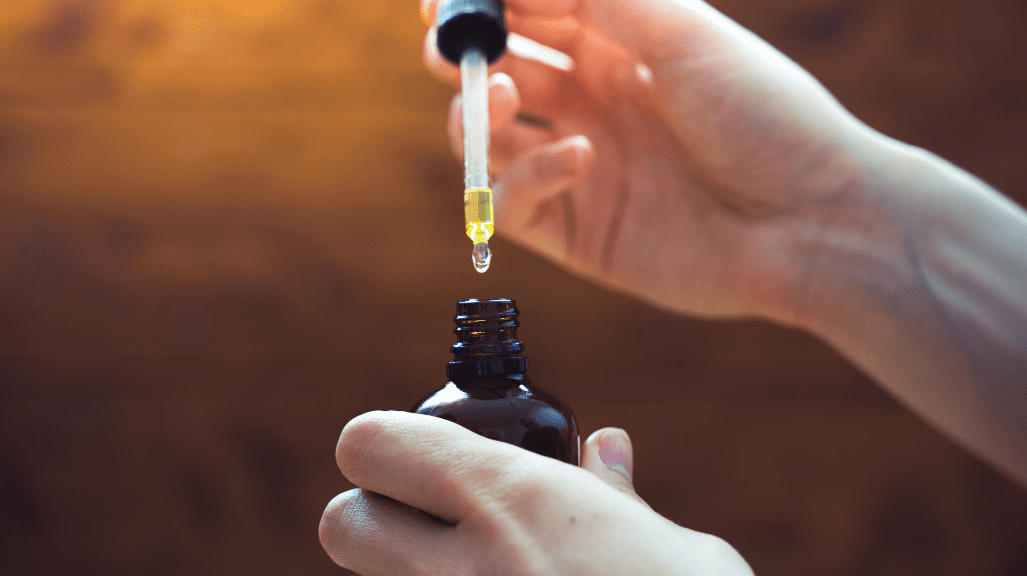
It is impossible to stress enough how important your thyroid health is for so many areas in your life. That’s why it is so critical that the millions of people who suffer thyroid dysfunction find the right solutions for their situation.
That said, natural treatments are an important thing for many people, especially when it comes to complex matters like hormone imbalance or hyper/hypothyroidism. But what thyroid treatments are available? What natural solutions are out there?
In this article, I will address both conventional and natural treatments for hyper and hypothyroidism. I will also link some of my favorite supplements for treating thyroid dysfunction so you know exactly where to go.
To make it especially easy for you, I’ve also supplied the links to purchase them directly from my store so you know you’re getting the exact recommendation I provide. Plus, you won’t miss out on Natural Med Doc supplement discounts and promotions! To order supplements from my store, you simply have to create a patient login and click through the site!
To do this, you will need to follow the ‘Welcome Link’ I’ve supplied below. Current patients already have an account and will not need to go through this process, so you only need to set everything up once and you’re set!
Welcome Link: https://us.fullscript.com/welcome/sbennett1527799795
Without further ado, let’s dive in with the best conventional and natural treatments for hypothyroidism and hyperthyroidism!
Millions of people suffer from underactive thyroids, a condition known as hypothyroidism. This can cause symptoms like weight gain, depression, low libido, irregular menstrual cycles, and more. While there is no absolute cure for hypothyroidism, there are ways that it can be managed and balanced.
This is a synthetically produced T4 hormone and is the most commonly prescribed thyroid medication. This is the go-to medication for conventional treatment.
Many practitioners will use this medication as a solo treatment for full thyroid management. The rationale behind this is that T4 is the most abundant thyroid hormone and will naturally convert to T3 in peripheral tissues. If a patient has hypothyroidism (low T4), then this medicine should theoretically do the trick. However, I often see otherwise, so this isn’t the ultimate cure-all!
This is a synthetically produced T3 hormone. As T3 is less abundant and more biologically active, a small dose is very powerful. This may be the reason that many providers do not utilize this medication in practice. However, I find that when dosed appropriately in conjunction with levothyroxine, hypothyroid symptoms improve dramatically.
Gum Guggul has been shown to increase thyroid functioning in animal studies. The ketosteroid compounds increase uptake of iodine by the thyroid gland and improve enzymatic activity to improve the ratio of T3 to T4.
Supplement: Commiphora Mukul – Guggul
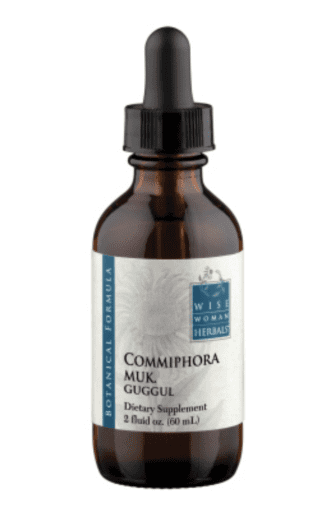
This is an herb that has recently increased in popularity due to its ability to aid in weight loss. Coleus Forksohlii helps to increase the metabolic rate through stimulating T3 and T4 secretion while improving thyroid iodine uptake and increasing cyclic AMP.
Supplement: Coleus Forskohlii
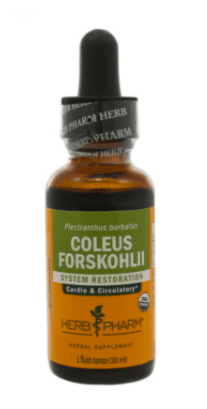
More than 800 million people across the world are iodine deficient. Iodine is an essential precursor to thyroid hormones, so deficiency not only causes goiters but also hypothyroidism or subclinical hypothyroidism.
Though Iodine is essential for thyroid hormone production, take caution! Supplementing with high doses should be medically guided since it must be balanced with other minerals to prevent aggravation of latent autoimmunity.
If any type of thyroid autoimmunity is a current diagnosis, be sure to check with your provider prior to beginning iodine supplementation, even in lower doses. Anywhere between 250mcg-1mg per day is generally considered safe in non-autoimmune patients.
To improve Iodine concentrations naturally, eliminate Bromide. This competes for the same receptors as Iodine. It is found in pesticides, certain medications, and solvents.
Iodine may be increased dietarily as well. High concentrations of iodine are found in seaweed, iodine-fortified table salt, fish, shrimp, and eggs.
Supplement: RLC Labs i-Throid 6.25mg
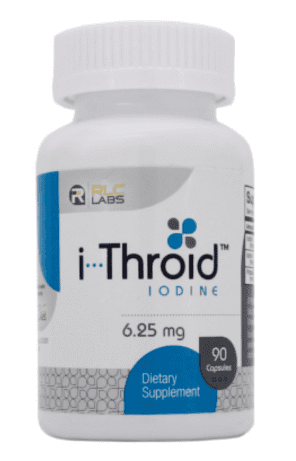
This is another key nutrient necessary for proper thyroid hormone production. Similar to iodine deficiencies, selenium deficiencies are frequently seen due to poor nutrient status in modern-day soil.
Selenium is a wonderful treatment for autoimmune thyroiditis, assisting in lowering antibody levels. In addition, it also is used to convert T4 to T3, helps regulate reactive oxygen species to prevent damage to the thyroid gland, and can improve thyroid structure seen on ultrasound imaging.
Standard doses of selenium range between 200-400mcg per day. This should not be exceeded due to risk of toxicity. Selenium toxicity may occur if supplementation exceeds these levels and lead to vomiting, diarrhea, tremors, and other unwanted symptoms.
Naturally, selenium may be increased through the consumption of 4-6 Brazil nuts per day. That said, concentrations of selenium may vary!
Supplement: Vital Nutrients Selenium 200mcg
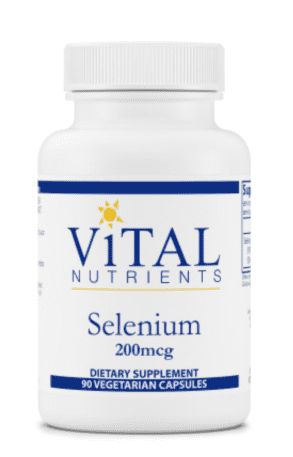
Tyrosine is an important precursor to thyroid hormones, but also catecholamines (dopamine) and norepinephrine.
Long term stress oftentimes leads to depleted levels of tyrosine, resulting in lower levels of all of the downstream products. This ultimately causes symptoms of fatigue and cognitive decline.
Supplementing 2 – 5 grams per day has been shown to not only improve thyroid hormone levels but also cognitive decline due to long term stress. Take caution when taking L-tyrosine if you have elevated blood pressure, previously diagnosed mania, or are currently taking Levadopa, or MAOIs. L-tyrosine may aggravate symptoms and interfere with medication concentrations respectively.
Supplement: Tyrosine
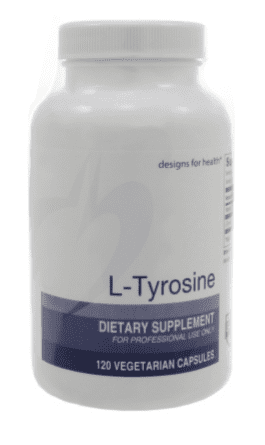
Glandular thyroid supplements are similar to glandular adrenal supplements that I discussed in my cortisol article. These supplements contain a desiccated thyroid gland of a cow or pig, that also contains low to moderate doses of bioidentical thyroid hormones T3 and T4.
Glandular products are a great way to take exogenous hormonal support, which effectively elevates thyroid hormone levels on lab testing. This being said I will still generally opt for a desiccated thyroid medication over the supplements on the market. This is because doses of T3 and T4 are more highly regulated, higher doses are offered, and these medications are often covered by insurance.
Supplement: Thyroid 32.5 mg
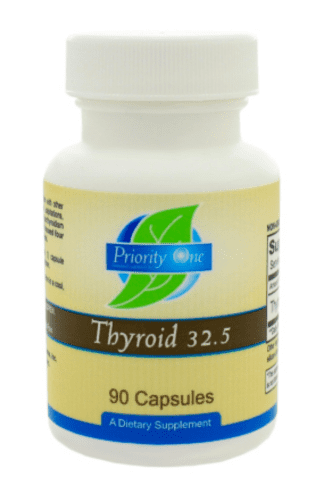
Finally, there is also natural medication that can be used. Desiccated thyroid medication (Naturethroid, Armour, NPthroid) is comprised of another animal’s thyroid gland and contains a combination of both T3 and T4. I use this medication frequently in practice and consistently see wonderful results!
Now that we have established the best hypothyroidism treatments to consider, we can dive into conventional and natural treatments for hyperthyroidism as well. This is the opposite condition that involves an overactive thyroid gland and symptoms like weight loss, irritability, anxiety, difficulty sleeping, and more.
Beta-blockers, such as Atenolol may be used for the management of unwanted symptoms associated with hyperthyroidism, such as palpitations, racing heart, and anxiety.
Methimazole is often the first line treatment for hyperthyroidism, inhibiting the production of thyroid hormones by blocking iodine from binding thyroglobulin to form thyroid hormones. Common side effects are nausea, vomiting, headaches, drowsiness, dizziness, rashes, and hair loss. Rarely, adverse side effects such as agranulocytosis and hepatotoxicity may occur.
Similar to Methimazole, PTU decreases the production of thyroid hormone by inhibiting the enzyme thyroid peroxidase from binding iodide to the tyrosine residue of thyroglobulin to create thyroid hormones.
In addition, PTU inhibits the conversion of T4 to T3 in the peripherie. Common side effects include nausea, vomiting, headaches, drowsiness, dizziness, rashes, and joint pain.
PTU does not inhibit hyperthyroidism as quickly as Methimazole. It also has the potential to cause liver damage, therefore making Methimazole the recommended first-line medication for hyperthyroidism. This being said, PTU is the recommended medication during the first trimester of pregnancy, due to lower risk of birth defects.
Iodides block the conversion of T4 to T3, inhibit hormone release, and therefore rapidly decrease thyroid hormone levels. Iodides are often prescribed prior to surgery, or radioactive iodine use, and in situations where other antithyroid medications are contraindicated, such as during pregnancy.
If antibody levels and thyroid hormone levels are not well controlled after 12-18 month of taking anti-thyroid medication, one of the following 2 thyroid destructive therapies are generally recommended.
In 1 dose, radioactive iodine is taken up by the thyroid and results in the destruction of the gland. However, this often results in hypothyroidism due to the permanent destruction of the gland. This is the preferred treatment for Grave’s disease in the United States.
Thyroidectomies are the thyroid treatment of choice over radioactive iodine for patients that are pregnant, children, or have enlarged thyroids. 25% percent of patients develop hypothyroidism, and 8% experience a relapse of hyperthyroidism.
This is an herb frequently used for its thyrosuppressive effects. Lycopus not only acts as a TSH receptor antagonist but also inhibits the production of T4 (therefore lowering T3 levels).
In addition, it decreases Grave’s Disease activity by blocking antibodies from binding. This herb should not be taken during pregnancy, lactation, or hypothyroidism.
Supplement: Lycopus Virginicus – Bugleweed
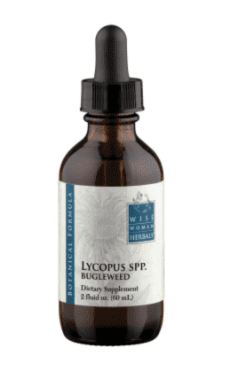
This is another thyrosuppresive herb that is frequently used in medicine to treat hyperthyroidism and Grave’s Disease. Lithospermum inhibits TSH production, TSH binding, and the secretion of thyroid hormones. It is contraindicated in pregnancy, lactation, hypothyroidism, and liver disease.
This is yet another popular thyrosuppressive herb that is used in natural management of hyperthyroidism. Melissa officinalis has a similar mechanism of action as Lycopus virginicus. It slows TSH-driven stimulation of the thyroid therefore inhibiting production of T4.
I often use all three of these herbs simultaneously for their synergistic properties!
Supplement: Meslissa Officinalis – Lemon Balm 2 oz
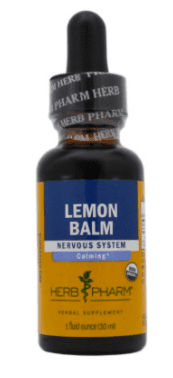
Research has shown that Leonurus cardiaca not only improves symptoms associated with hyperthyroidism (such as palpitations, and anxiety) but also inhibits TSH, therefore reducing thyroid hormone production.
Leonurus is considered generally safe, with exception to those that are pregnant, breastfeeding, or undergoing surgery. Possible side effects include diarrhea, stomach upset, uterine bleeding, sleepiness, and allergies.
Supplement: Leonurus Cardiaca – Motherwort
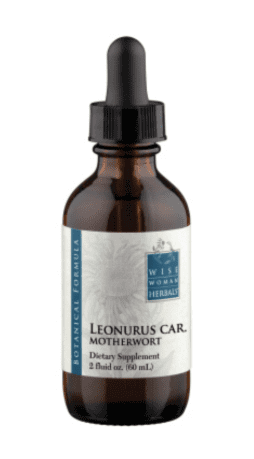
Elimination Diet
Eating a clean diet free of inflammation-causing foods is important for the management of all autoimmune conditions. A clean diet helps to lower antibodies and therefore resolve symptoms and decrease disease process.
Elimination diets are the gold standard for determining which foods should be eliminated based on your individual needs. Gluten is known to aggravate autoimmune thyroiditis, so a gluten-free diet is therefore regularly recommended for optimal management of these conditions.
Another important treatment area to explore surrounds the proper balance of antibodies. As mentioned, autoimmune conditions can cause abnormally high levels of antibodies that provoke thyroid dysfunction such as Grave’s Disease.
In standard doses, naltrexone is a medication used to treat addictions such as alcoholism, but recently it has been found that low and even microdoses of naltrexone are effective at decreasing inflammation and disease progress in autoimmune conditions such as Hashimoto’s and Grave’s Disease.
Research has found that Low Dose Naltrexone (LDN) effectively reduces plasma concentrations of inflammatory markers, such as interleukin (IL)-1β, IL-1Ra, IL-2, IL-4, IL-5, IL-6, IL-10, IL-12p40, IL-12p70, IL-15, IL-17A, IL-27, interferon (IFN)-α, transforming growth factor (TGF)-α, TGF-β, tumor necrosis factor (TNF)-α, and granulocyte-colony stimulating factor (G-CSF).
LDN is a prescription that is frequently used successfully to help reduce antibody levels in various autoimmune conditions.
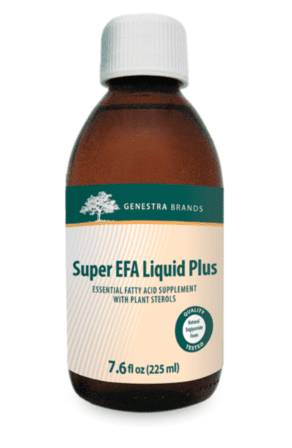
Super EFA Plus is one of my favorite supplements for decreasing autoimmune activity and decreasing antibody levels. This is due to its potent blend of fish oil (DHA, and EPA) and Plant sterols.
Plant sterols are known to not only decrease antibody activation, but normalize T cell activity, and improve inflammation levels. Research has shown that fish oil effectively decreases antibody levels in mice. In addition, Omega-3 fatty acids, specifically ALA, DHA, and EPA have been found to inhibit the activation of immune cells from both the innate and the adaptive branches.
Finally, it’s important to recognize the complexity of your thyroid and to understand that not everyone has clear cut hypothyroidism or hyperthyroidism. Sometimes, the best solution can be found in thyroid supplement blends to promote your overall thyroid health.
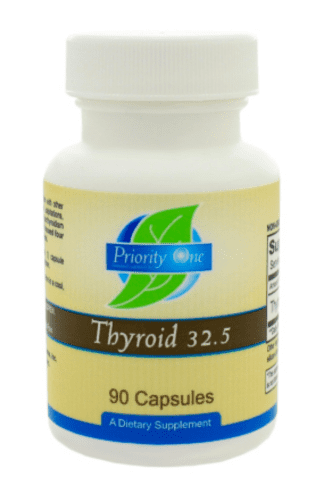
Priority One Thyroid Support is a complete vegetarian supplement supplying all the essential nutrients to promote healthy thyroid function. The standard dose is two capsules a day or as directed by a naturopathic physician.
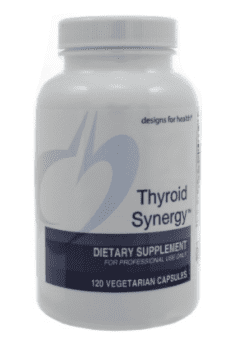
Thyroid Synergy was designed to be a top-quality, all-in-one formula for the nutritional support of thyroid function. The non-stimulating adaptogenic botanical American ginseng (Panax quinquifolius) helps maintain healthy cortisol, blood glucose and insulin levels, along with a balanced conversion of peripheral thyroid hormone.
Essential vitamins, minerals, and other nutrients work synergistically to provide a premium thyroid product in just two capsules a day.
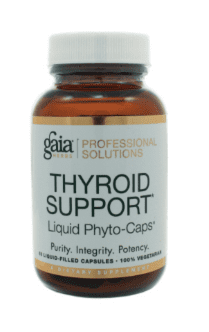
The health of the thyroid gland impacts how you feel on a daily basis. Because it helps regulate metabolism, every major system in the body is affected by thyroid hormones. Gaia Herbs’ unique formula supports normal thyroid hormone production — helping you maintain optimal weight, neuromuscular tone, and cardiovascular health.
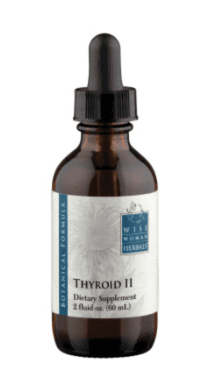
Thyroid II is a drop supplement that promotes normal and healthy thyroid gland function. The general dose is 40-60 drops in water 2-3 times a day shaken well. It is not recommended for individuals with hypothyroidism as it may interact with thyroid hormones in an adverse way. If you have any uncertainty, always be sure to talk to your naturopathic doctor before beginning!
As you can see, there are actually a lot of different resources available to help you optimize your thyroid health. Hopefully this article brought some new natural treatments to your attention so you can get started on living your best and healthiest life!
To recap, we covered thyroid treatment options surrounding:
Of course, it is totally understandable if you still feel a little anxious about which supplements to take and what dose you should be following. This is why it is still helpful to speak to a physician, so always feel free to reach out for a free consultation so we can talk about the steps you should be taking to make sure you are using the best treatment options for you!
What did you think about the thyroid treatment options we discussed today? Did any jump out to you and feel like they spoke to your personal needs? Were there others you’ve heard of that you have questions about? Continue the conversation with any questions or insight you have!